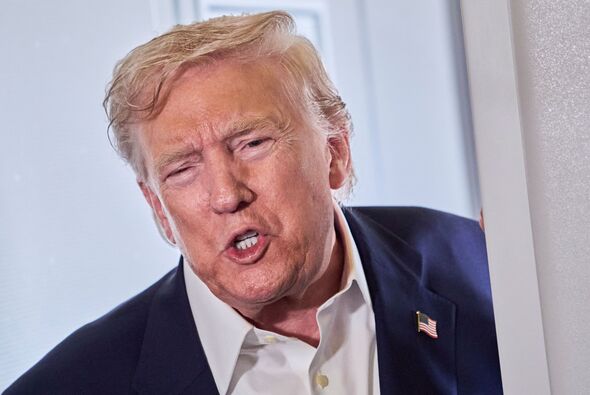In a significant development for North American relations, former President Donald Trump recently announced a 90-day extension of the existing trade agreement with Mexico following direct discussions with Mexican President Claudia Sheinbaum. This diplomatic move signals an ongoing effort to navigate the complex economic and security landscape shared by both nations, emphasizing a period of crucial dialogue and potential realignment of international tariffs.
The announcement, made via Truth Social, highlighted a nascent but important rapport between the two leaders, with Trump stating their mutual process of “getting to know and understand each other.” This personal engagement underscores the critical nature of the bilateral relationship, particularly given the intricate challenges posed by the shared Mexico trade border.
The former president acknowledged the unique difficulties inherent in a trade agreement with Mexico, attributing them to both the challenges and strategic advantages presented by the extensive border. This recognition points to a deeper understanding that traditional trade frameworks must adapt to address multifaceted issues, including illicit flows and economic opportunities intertwined with border security concerns.
Under the terms of the 90-day extension, key tariffs remain in effect: a 25% levy on fentanyl, a 25% tariff on cars, and a 50% tariff on steel, aluminum, and copper. These specific international tariffs illustrate the United States’ continued focus on protecting domestic industries and combating the import of dangerous substances like those contributing to the fentanyl crisis.
Crucially, Mexico has also committed to immediately dismantling its existing non-tariff trade barriers, which were described as numerous. This removal aims to streamline commerce and foster fairer trade practices. Both nations anticipate intensive negotiations over the next three months, with the ambitious objective of formalizing a comprehensive new Mexico trade deal, potentially within or beyond the 90-day timeframe.
Beyond economic aspects, the extended agreement solidifies a commitment to sustained cooperation on all facets of border security. This includes joint efforts to curb drug trafficking, dismantle drug distribution networks, and manage illegal immigration into the United States, reflecting a shared priority in maintaining regional stability and national safety, a key focus for the Trump administration.
This diplomatic progress unfolds against a backdrop of increasing concerns regarding the activities of Mexican cartels. Since his return to office, the Trump administration has notably designated these organizations as Foreign Terrorist Organizations (FTOs), highlighting their destabilizing influence throughout the Western Hemisphere.
The decision to label cartels as FTOs underscores the severity of their operations, which involve widespread violence and terror. This campaign of disruption not only threatens regional stability but also directly impacts U.S. national interests, making robust cartel crackdown efforts and integrated border security measures paramount for both countries.






Leave a Reply